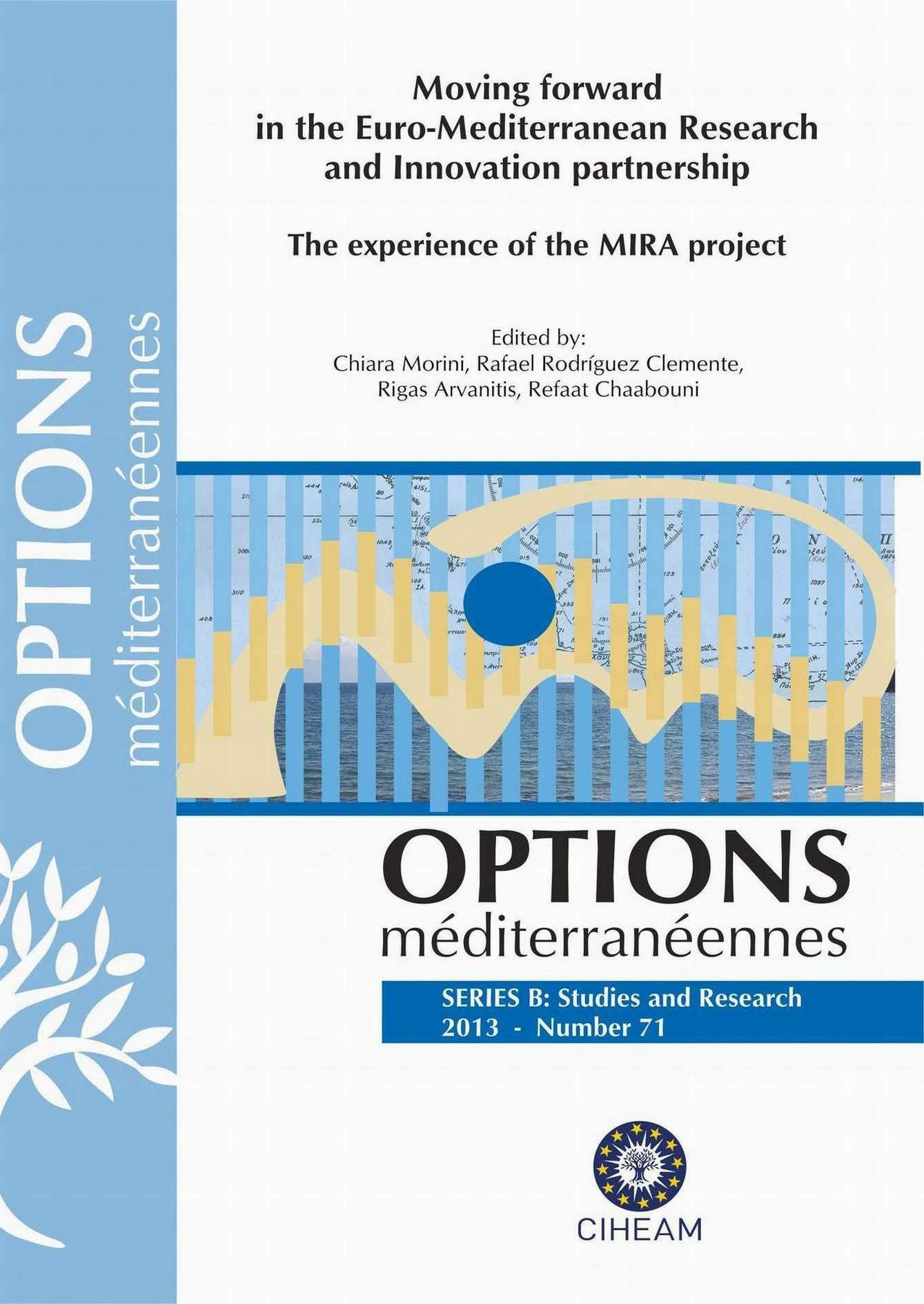| Article précédent | p. 205-214 | Article suivant |
End aid now: a prospect of financial synergies for a long-term Euro-Mediterranean cooperation on science, technology and innovation
The Mediterranean region has traditionally been an area of interest for the EU external relations. Several cooperation initiatives have been focussed on this region, within the framework of a “Mediterranean dimension” encompassing security, economic, social and political aspects. In 1995, the Barcelona Conference reinforced this framework in order to create a “shared peace, prosperity and security” area. This ambitious goal, re-launched by the creation of the Union for the Mediterranean (UfM), has not been fully achieved yet. With particular reference to Science, Technology and Innovation (STI), the EU cooperation policies with the Mediterranean Partner Countries (MPCs), supported by different co-funding tools, have not completely defined a harmonized institutional and regulatory co-ownership framework at multi-lateral level. This partial failure is mainly due to a poor governance of STI Euro-Mediterranean cooperation, and to the political scenario that has characterized the area in the past 20 years. The objective of this paper is to give food for thought on the rethinking of Euro-Mediterranean STI cooperation policies and tools by proposing a new governance that might ensure the sustainability of such cooperation. Considering the current political, social and economic conditions of the Mediterranean region, the first section of the paper describes the background of Euro-Mediterranean STI cooperation. In the second part emphasis is laid on stocktaking and critical assessment of co-financing instruments such as ERA-NET, ERA-NET plus and Article 185 of the Treaty on the Functioning of the EU, in order to identify their strengths and weaknesses. The third section highlights the need to renew the EU STI cooperation policy in the Mediterranean region on the basis of co-ownership and co-funding principles, through shared actions able to support co-development.
Traditionnellement, la Méditerranée a représenté un espace très intéressant pour les relations extérieures de l’UE. En effet, de nombreuses initiatives de coopération ont été entreprises en faveur de cette région, dans le cadre d’une “dimension méditerranéenne” qui réunit divers aspects concernant la sécurité, l’économie, la société et la politique. En 1995, la Conférence de Barcelone a renforcé ce dispositif en vue de contribuer à la création d’une zone de “paix, sécurité et prospérité partagée”. Cet objectif ambitieux, relancé par l’Union pour la Méditerranée (UpM), n’a pas été entièrement réalisé. En particulier, dans le domaine de la Science, de la Technologie et de l’Innovation (STI), la politique de coopération entre l’UE et les pays partenaires méditerranéens, soutenue par plusieurs instruments de cofinancement, n’a pas défini un cadre institutionnel et réglementaire de copropriété harmonisé au niveau multilatéral. Cet échec partiel est dû principalement à une faible maîtrise de la coopération euro-méditerranéenne en matière de STI et au scénario politique qui s’est dessiné dans la région ces 20 dernières années. L’objectif de ce travail est de réfléchir à une refonte des politiques et des instruments de coopération euro-méditerranéenne en STI, en proposant un nouveau cadre de gouvernance qui puisse assurer la durabilité de cette coopération. Compte tenu des conditions politiques, économiques et sociales actuelles dans la région, nous allons dresser dans un premier temps l’état des lieux de la coopération euro-méditerranéenne en STI. Ensuite, nous allons proposer une évaluation critique des instruments de cofinancement tels les ERANETs, ERANET+ et les initiatives basées sur l’article 185 du Traité sur le Fonctionnement de l’Union Européenne. Dans une troisième partie, l’accent sera mis sur la nécessité de renouveler la politique de coopération en STI dans la région Méditerranéenne, sur la base des principes de copropriété et cofinancement, à travers des actions communes visant à soutenir le codéveloppement.
- [ Afficher ]
- [ Télécharger ]
- [ Exporter la citation ]
Vous pouvez télécharger la citation au format :
- [ Imprimer ]
-
Mots-clés
COOPERATION, GOUVERNANCE, INNOVATION, PARTENARIAT EUROMEDITERRANEEN, PROPRIETE COLLECTIVE, TECHNOLOGIECiter cet article
Semeraro M., Giannelli M., Bogliotti C., El-Zoheiry A.H., Lacirignola C. End aid now: a prospect of financial synergies for a long-term Euro-Mediterranean cooperation on science, technology and innovation. In : Morini C. (ed.), Rodriguez Clemente R. (ed.), Arvanitis R. (ed.), Chaabouni R. (ed.). Moving forward in the Euro-Mediterranean Research and Innovation partnership. The experience of the MIRA project. Bari : CIHEAM, 2013. p. 205-214. (Options Méditerranéennes : Série B. Etudes et Recherches; n. 71). http://om.ciheam.org/om/pdf/b71/00006796.pdf



